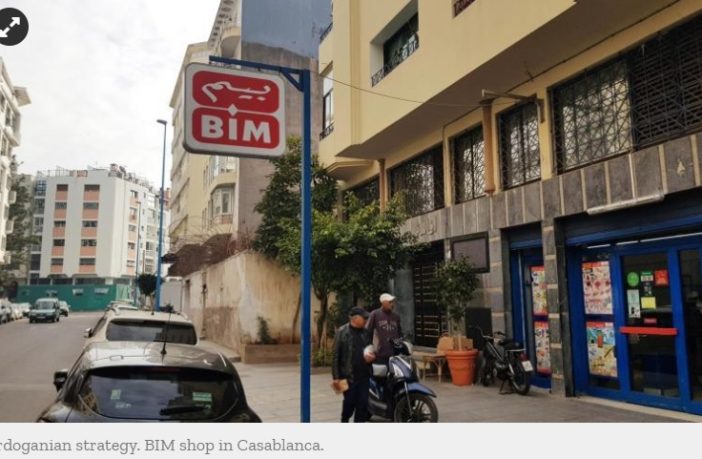Middle East Online – Saad Guerraoui
Some Moroccan MPs slammed what they called the “Erdoganian Anatolia,” an aggressive economic policy against the Moroccan market led by Turkish President Erdogan.
Morocco’s ties with Turkey have soured both politically and economically following reports that Rabat recalled its ambassador to Ankara and asked for a re-evaluation of a free trade agreement between the two countries.
Ambassador Mohamed Ali Lazrak was recalled in January by the Morocco Foreign Ministry, which is yet to issue an official statement about the incident, Moroccan magazine Telquel reported, citing an anonymous diplomatic source.
Analysts said Morocco’s decision followed Turkey’s move to send troops to Libya to fight alongside forces loyal to the UN-recognised Government of National Accord led by Fayez al-Sarraj against an offensive by fighters loyal to eastern-based Field-Marshal Khalifa Haftar.
Rabat expressed “its deep astonishment at being excluded” from the Berlin Conference on Libya in a statement issued January 18.
“Morocco played a decisive role in the conclusion of the Skhirat Agreements, which are, to date, the only political framework — supported by the UN Security Council and accepted by all the Libyan protagonists — for the resolution of the crisis in this brotherly Maghreb country,” the Foreign Ministry said.
A video broadcast in December on a Turkish state television channel about a Sahrawi separatist almost sparked a political crisis between Rabat and Ankara at a time when Morocco was considering renegotiation of a free trade agreement (FTA) between the two countries.
Turkish Foreign Minister Mevlut Cavusoglu downplayed the video, calling it a “misunderstanding” during a news conference with Moroccan Foreign Minister Nasser Bourita in Rabat.
Trade ties between Morocco and Turkey are going through a crisis because of a huge trade deficit in favour of Turkey. Moroccan Minister for Industry, Trade and the Green and Digital Economy Moulay Hafid Elalamy said that Turkey had agreed to revise the FTA with Morocco to make it mutually beneficial.
The FTA, which entered into force in 2006, backfired on Morocco’s economy as the country posted a trade deficit of $1.9 billion with Turkey. Elalamy admitted that Morocco’s textile industry had badly suffered from the agreement, with more than 122,000 jobs lost in the sector from 2014-17.
“We intervened three years ago as a ministry to introduce customs taxes but it is impossible to extend the restriction more than three years and we have arrived in 2020,” Elalamy told parliament. “Morocco is asking either to revise the terms of the agreement or to shred it.”
Some Moroccan MPs slammed what they called the “Erdoganian Anatolia,” an aggressive economic policy against the Moroccan market led by Turkish President Recep Tayyip Erdogan.
Economic analyst Mehdi El Fakir said the FTA needed to be reviewed following proof of Turkey’s dumping policy. “The Turkish government would not have accepted to revise the FTA if the dumping policy had not been harmful to the Moroccan economy,” said Fakir.
Elalamy warned Turkish discount retailer BIM Stores to raise the proportion of local goods it sells in its shops across the country to at least half or face closure.
“If we get at least 50% of the local goods sold in BIM stores, we can understand but this is not the case,” he said.
He argued that dozens of local businesses shut down following the opening of BIM stores in several neighbourhoods.
BIM Chief Financial Officer Haluk Dortluoglu told Reuters that most of the low-cost retailer’s goods were bought from Morocco. “We are sending only around 15% of our products sold in Morocco from Turkey. The rest, 85%, are bought from local producers,” said Dortluoglu.
Fakir raised a question about BIM’s loss-making business in Morocco despite its ongoing negative financial results in the Moroccan market. “The Turkish retail chain has been abnormally in deficit since its creation. It looks like there is a disguised dumping policy,” said Fakir.
BIM continues to support its Moroccan subsidiary although the latter has gone through several multimillion-dollar recapitalisations in the past eight years.
This article was originally published in the The Arab Weekly.







